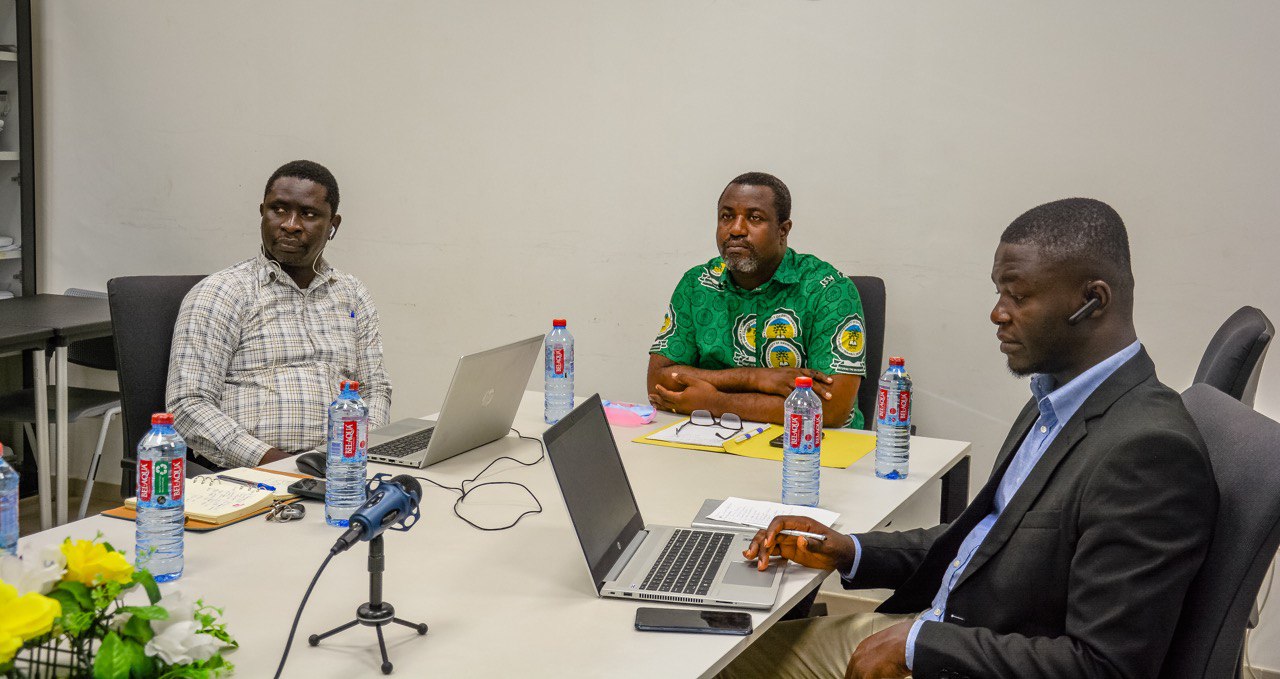
A Canada-based Chemist, Dr. Edward K.P. Bam, has highlighted the global challenges faced by nations regarding water security due to population growth, land-use change, and climate change. He emphasized that these challenges are transforming agriculture and industrial activities which could have severe consequences for groundwater and other water resources.
Dr. Bam who has over ten (10) years of experience in hydrology and water resources research was the guest presenter at the University of Environment and Sustainable Development (UESD), 6th virtual seminar held in March, and participated by members of academia. The seminar was moderated by Prof. Anthony Amoah, the Dean of the School of Sustainable Development (SSD) was joined, the Acting Head of the Department of Sustainable Development and Policy, by Dr. Michael Tuffuor. Other Participants were the Vice-Chancellor, Professor Eric Nyarko-Sampson, the Registrar, Mrs. Mary Abena Agyepong, faculty members, and staff of the University.
The seminar which was on the topic “Stable Water Isotopes: Vulnerability of Water Resources in a Tropical Humid and Semi-Arid Region of West Africa” delved into the challenges faced by water resources in Ghana and the wider West African region. It explored the impact of climate change and land use on water resources and how stable water isotopes can provide insights into these challenges. The seminar was particularly relevant to policymakers, researchers, and stakeholders interested in understanding and managing water resources in Ghana and West Africa.
Dr. Bam, a postdoctoral research fellow at the University of Alberta noted that while much attention has been given to the impact of climate change on surface water bodies, little research has been conducted on the effects on groundwater, which was a crucial source of drinking and irrigation water for much of the population in the developing world.
The researcher presented scientific analysis using isotope measurements from rainfall, rivers, wetlands, and groundwater in Ghana between 1980 and 2019. He also demonstrated how stable water isotopes can be used to trace vulnerable water sources in Ghana and highlighted the direct connection between rainfall, groundwater, and surface water in Ghana, suggesting that groundwater and surface water are connected in parts of the country while groundwater is mainly replenished by rainfall. He cautioned that heavy rainfall could cause floods and surface water pollution, which could lead to groundwater pollution and vice versa.
Additionally, he opined that land-use changes could affect groundwater quality, as reported in several studies conducted in the Region. Dr. Bam stressed that the implications of climate change could affect various aspects of life in Ghana, from water availability and quality to the destruction of the environment, the economy, hydro, and nuclear power generation, job losses, ecosystem health, and national security.
The Chemist made several recommendations, including water conservation, targeted managed aquifer recharge, water quality monitoring, integrated water resources management, and the establishment of a Ghana Water Security Agency. He said, the recommendations aim at promoting sustainable replenishment and protection of groundwater resources in the region, coordinated management of surface water and groundwater resources, and monitoring of water quality across the Regions of Ghana.
After the session, there were interactions between him and the participants. In his remarks, the chair of the seminar, Prof. Anthony Amoah, stated that the UESD International Virtual Seminar which is an initiative by the Vice-Chancellor, Prof. Nyarko-Sampson that seeks to bring great minds and top-class research to local universities as part of the learning experience. It also seeks to inform policy decisions through scientifically justified research findings, saying, ‘if this is well received and attended to, we expect a change in the narratives via-a-vis building quality research faculty and making informed policy decisions,’ he added.

